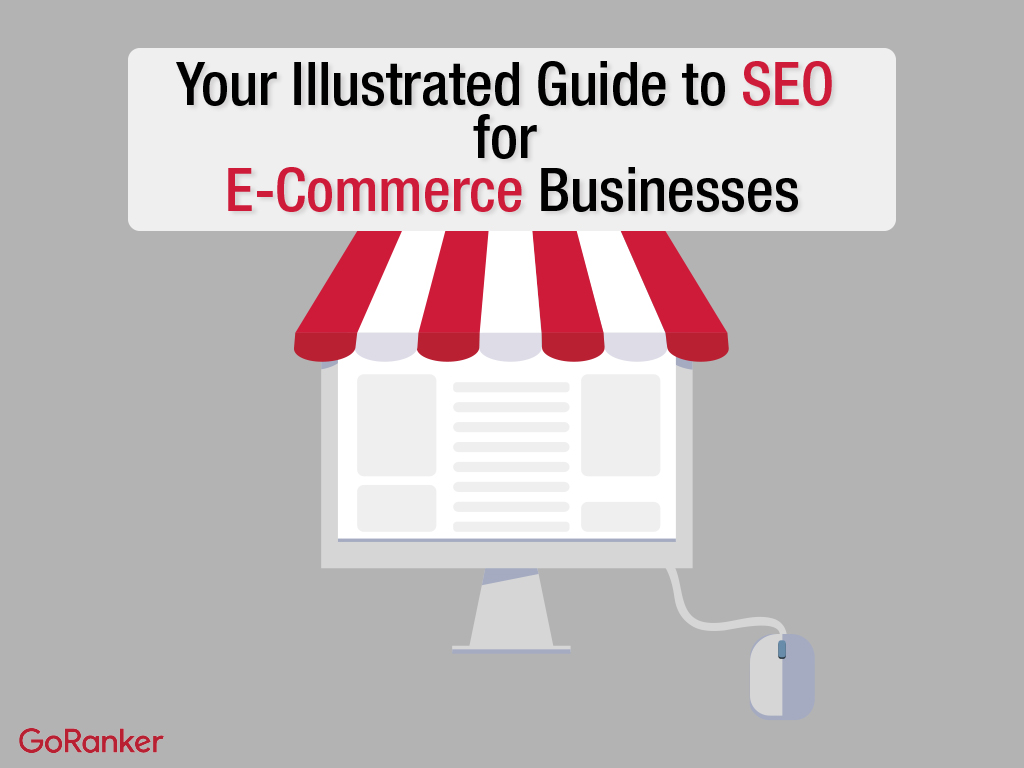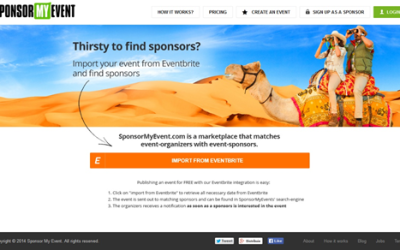
We live in struggling times, while the Internet itself keeps changing and keeps demanding change. Some might say it is all due to the Post Penguin Era, others say Google is too demanding. I say that we need quality and we need to play by the rules. We are professional Internet Marketers who constantly seek to improve our digital habits and I believe it is safe to acknowledge that link building and search engine optimization represent our digital signature, while also playing a key-role in our social media image. I hope that by the end of this article you will all agree with me.
1. The Place Where It All Began: The 90’S
I am sure many of you know the history of search engine optimization. In short, let’s say that it started in 1991, when data was transferred through FTP clients, then reached an audience as Google, Yahoo and other small search engines appeared as an alternative to unite the “world wide web”. This happened somewhere in the final stages of the 90’s. Nothing new here.
Meanwhile advertisers, e-commerce companies and clients believing in smart investments started to see the search engine’s potential. Ranking high in the first pages of a search engine became a desideratum. People started investing money, yet the costs were significantly lower in comparison to traditional advertising environments. Then it happened: SEO hit the stage. This reminds me of Mel C’s song lyrics: “it’s just the beginning, it’s not the end. Things will never be the same again”. And things were never the same after SEO reached the surface. Every website owner wanted to make it in the top pages and get exposure, traffic, visitors in order to monetize their blogs and pages.
2. Evolution Comes With Costs
I started as an Internet user back in the summer of the year 2000. I think I was around 11 years old. I had a lousy Internet Connection and website loading time took minutes. But I loved Google and the fact that I could type something and search for stuff. Back then, I didn’t know people would invest in order for their website to appear first in keyword searches. Nor did I know the difference between #1 and #6 in First Page Google.
Back then, there were few high authority websites and search engine optimization was pretty much at a prehistoric level similar to the time when people first discovered fire: the taste of a website with strong search engine optimization could not be compared to that of a website with no SEO metrics.
As years passed by, we all saw how much things have improved: Google kept updating itself. As Google grew bigger and stronger, the expectations grew as well. Now Google wants quality, legal and white hat SEO, smart link building. I believe evolution comes with its costs and it is an overall irreversible process: after wanting and getting to the next stage, you cannot back down. We all wanted better search platforms, Internet users and marketers alike. We wanted quality, informational content, relevancy, up-to-date news and articles.
So SEO and link building kind of needed an update, as well, mainly because in a search engine everything is interlinked: you cannot have without the other.
3. Playing By The Rules Of Best Practices
Let us leave the average Internet users behind a bit and move to the next step: why every professional Internet Marketer must abide to the rules of the best practices. Let’s take for example the following situation: your client has a network of 100 blogs and websites and wants to rank higher in terms of keyword searches and SEO metrics. You have to generate at least 3000 articles per month, 1000 backlinks and an average quality goal of at least 7 out of 10, plus at least 100 keywords optimized for #1 page Google. What do you do? Where do you start from? Is the client’s goal realistic? Can it be done in a timely manner? Do you have the necessary resources?
What I referred to was simply a made-up example, in order to bring out the idea of what challenges mean to the modern Internet Marketer and SEO professional. My friend Theresa from a search marketing agency and I worked on sharing information in terms of best link building practices in a given situation. New suggestions are always welcomed, of course:
3.1.Link Building Must Be Done SMART
This means Specific, Measurable, Achievable, Realistic, in Timely manner. Reason(s):
- a) Specific – should I really insist why? Well, if you insist… Google loves websites that know their material and Google loves web owners who do their homework. You cannot practice link building for a beauty blog by providing backlinks from a tech blog. Unless you know your way into Horizontal Guest Posting. Don’t worry. We are getting there in a matter of … words. But keep in mind that some niches just don’t “click” one another.
- b) Measurable– make yourself some new friends called Apps and Tools. Many of them offer their friendship for free. Trust me, they are loyal and usually honest, they will never lie, cheat, fake. And use them on a regular basis. Not daily, but weekly. You won’t be disappointed.
- c) Achievable– Think if the plan you want to follow can be achieved by any means. Make it sure to keep things in your resource zone. While massive link building is possible, it also feeds on your resources. Sometimes, too much. You may end up empty handed, “resource-less” and with fewer to no realistic results.
- d) Realistic– Talking about realistic link building, your strategy must meet the harsh reality and adapt. A website’s SEO metrics will not grow overnight. Sometimes, it can even take years if the main objective is too idealistic. When things are clearly explained, the process of link building becomes more connected to reality, so the possibilities come closer to us as professionals.
- e) Timely manner– Of course, we are talking about Internet Marketers, so pardon me if we do not have 300 days in a month to complete a project. Sorry to disappoint, but the month usually has 30 to 31days, even for us. Link building is time consuming and in the same manner it is time-sensitive and time dependent. Remember how it feeds off resources? Well, time is one of our most valuable resources in SEO. There is no such thing as “too little” or “too late”, act now or forever hold your website in the abyss of Google’s pages.
3.2. Link Building Must Grant the Internet Marketer an Access to Performance Self-Evaluation
This refers to the possibility of the professional to establish what in their strategy is working and what is not. The SEO “expert” should be able to tell their good points and weak points in a link building campaign. They should also be able to understand that there is no such thing as “expert”: the term is truly exhaustive. What we can say is that there are 2 types: professionals and amateurs.
And because I believe we all determine our own destiny and path, my suggestion is to create a list of at least 30 behaviors which best describe professionals. Failed more than 3 behaviors? Then leave link building to someone who does their homework best. What I just suggested is commonly called a “control list” that evaluates work performance. Due to limited resources and funding I am not able to create standard control lists which could provide an insight to performance evaluation of Internet Marketers and SEO Professionals.
3.3. Link Building and Guest Posting
Just as a recent “ultimate guide to guest posting” on the Search Engine Journal states, back linking through guest posting should be sustainable, wise, ethical. What Internet Marketers should know:
- Guest posting is the expression of quality, creativity and knowledge. It is also an expression of community resonance.
- The primary aim of a guest post need not be SEO rankings and link advertising. Instead, it should focus on helping bloggers, readers and Internet users. After all, if all the above criteria are met, almost no one would refuse a link placement in text or in author bio.
- Guest postingand link building have in common the need to connect: one connects people and users, the other connects links. These connections are often taken for granted and this is where the harmony and the relationship break.
- While social media teaches us that “sharing is caring”, so does guest posting, a healthy practice that Google loves when done right.
- In its purest form, guest blogging is the most powerful white hat SEO strategy. And of course, when done without abusive intentions.
- In specific conditions, Guest Posting can be done directly or through Horizontal Guest Posting. This is another healthy white hat SEO practice and it includes bridging two or more article topics and creating or discovering new connections between niches, concepts, ideas.
- Horizontal Guest Posting requires even more resources in terms of successful link building, however the results are even greater than traditional guest posting.
4. Is Social Media Linked To Link Building And The Rules Of Best Practices?
Of course it is. It is indirectly linked or was up until recently. Ever since Google launched its own social media platform Google+, the role of social media in link building has increased in value. Google now provides what we call “Google Authorship”, a way of building your Google Author Rank, while also recognizing your contribution as guest author to a specific website. Indirectly, other social media platforms such as Pinterest,Twitter, Facebook and LinkedIn are still influencing our credibility in link building campaigns.
And with this final point, I believe the explanation is pretty clear to why playing by the rules of best practices can improve our social media image, specifically in the case of link building campaigns and in that of Internet Marketers and Professionals.








